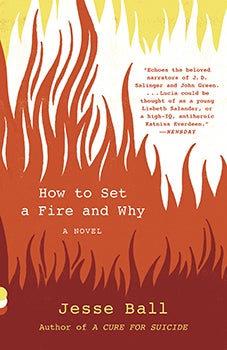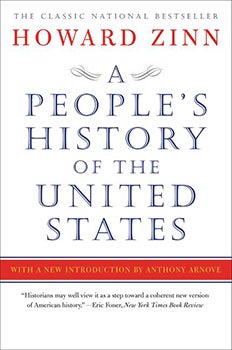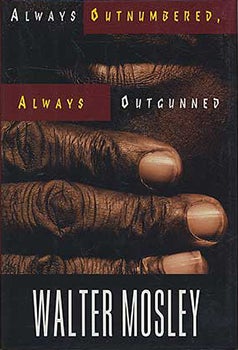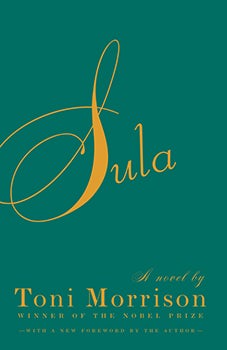
The books high school students should be reading, according to USC Dornsife faculty
High school reading lists are packed with “classics” that have found a permanent spot in the literary canon. But is it time to consider some new additions to the books teenagers read in high school?
While it’s easy to see the continued cultural relevance of titles like George Orwell’s 1984, J.D. Salinger’s The Catcher in the Rye, and yes, even Shakespeare’s tragic love story staple, Romeo and Juliet, there’s no doubt that bibliophile teens would appreciate some updated or unexpected options. So we asked English professors at USC Dornsife for suggestions. Here’s what Aimee Bender, Viet Thanh Nguyen, Thomas Gustafson and Leo Braudy had to say, in their own words.
 “Citizen: An American Lyric by Claudia Rankine is a book of poetry that raises questions about race and America in crucial, fresh ways. It is devastating and aches to be discussed at length. This is often taught in college now, but I think high schoolers could handle it and would be amazed to encounter a discussion of Serena Williams alongside stories of microaggressions and then lists of police brutality — it is endlessly relevant and stunningly written.
“Citizen: An American Lyric by Claudia Rankine is a book of poetry that raises questions about race and America in crucial, fresh ways. It is devastating and aches to be discussed at length. This is often taught in college now, but I think high schoolers could handle it and would be amazed to encounter a discussion of Serena Williams alongside stories of microaggressions and then lists of police brutality — it is endlessly relevant and stunningly written.
“For options about or told by teenagers: How to Set a Fire and Why by Jesse Ball is a marvel of voice, a kind of Holden Caulfield retelling for now. Lucia, the main character, is subversive and anti-institution, so it would provoke a lot of conversation in class, but I think they would be meaningful, vital discussions. Or Cruddy by Lynda Barry, which is absurdly dark, funny, unique, weird, startling — would certainly wake up people in class. And might make some into writers.”
AIMEE BENDER
Distinguished Professor of English
 “Americans don’t know enough of their own history, and much of what they get is filtered through the concerns of the dominant and the powerful. Howard Zinn’s A People’s History of the United States offers a corrective to both. You can disagree with him, but at least in his work you have an alternative to mainstream thinking.“
“Americans don’t know enough of their own history, and much of what they get is filtered through the concerns of the dominant and the powerful. Howard Zinn’s A People’s History of the United States offers a corrective to both. You can disagree with him, but at least in his work you have an alternative to mainstream thinking.“
“Harriet Jacobs’s Incidents in the Life of a Slave Girl is one of the most important of the slave narratives. Recommended because it shows how the #metoo moment and the ‘intersectional’ thinking of the present deal with issues that go back at least to the 19th century. Then and now, we need to think about all our lived identities simultaneously, including race, sex, class, gender and power.”
VIET THANH NGUYEN
University Professor of English, American Studies and Ethnicity and Comparative Literature and Aerol Arnold Chair of English
 “I have many students from Southern California, but I’ve discovered few of them have ever read any literature set in this region, so my selections make up for this lack.
“I have many students from Southern California, but I’ve discovered few of them have ever read any literature set in this region, so my selections make up for this lack.
“I want them to read stories that would help give them a sense of place and history about Southern California, such as Walter Mosley’s Always Outnumbered, Always Outgunned set in Watts; Budd Schulberg’s What Makes Sammy Run?, one of the best novels about Hollywood and Los Angeles in the early 1940s; Anna Deavere Smith’s play Twilight: Los Angeles, 1992 (a remarkable docudrama about the L.A. rebellion of April 29, 1992); my colleague Dana Johnson’s collection of stories In the Not Quite Dark; and the collection of essays Tattoos on the Heart: The Power of Boundless Compassion by Father Greg Boyle (founder of Homeboy Industries).
“Each of these choices can be read with pleasure and insight and ease by high school students (and engaged citizens of this region).”
THOMAS GUSTAFSON
Associate professor of English and American studies and ethnicity
 “The question is: how much to expand the student’s experience to empathize with different upbringings and lives; and how much to take them out of their everyday circumstances to other times and places?
“The question is: how much to expand the student’s experience to empathize with different upbringings and lives; and how much to take them out of their everyday circumstances to other times and places?
“I’ll focus on the first area. I would include Toni Morrison’s Sula, Sylvia Plath’s The Bell Jar and John Knowles’s A Separate Peace. Each novel takes characters close to or in adolescence facing questions of identity, morality, and value. Each embeds those characters in a different kind of community and a different set of relationships, family and otherwise.
“If one of the prime functions of literature is to allow the reader some emotional and material connection to the inner and outer lives of other people, for high school students, these three are a fine introduction.”
LEO BRAUDY
University Professor and Leo S. Bing Chair in English and American Literature and professor of English, art history and history